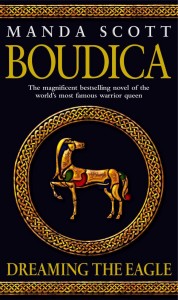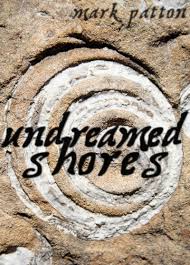Mark Patton on his novel about Cogidubnus, client King in early Roman Britain
Richard Lee
RL: An Accidental King might be subtitled “I, Cogidubnus” – a first person narrative charting the life of a British client king in early Roman Britain. It sounds a fascinating subject: how did you first settle on your narrator?
MP: The novel is very much about the viewpoint. There is plenty of fiction set in early Roman Britain, but nobody (as far as I know) has explored it from this point of view. The fact that we know so little about the real Cogidubnus (we don’t, for example, know the date of his birth or death, the identity of his parents or spouse, whether he had any children) gave me a great deal of freedom to develop the story, and this was also attractive. Cogidubnus appears as a minor character in several published works (Douglas Jackson’s novel, Claudius, for example, and Manda Scott’s short story, “The Last Roman in Britain” – www.historyextra.com/boudica), in which he is imagined as a quisling, a traitor motivated by self-interest. The real Cogidubnus may well have been just such a man (we will almost certainly never know), but this would not make for a very interesting protagonist. The challenge I set myself was to imagine and present him as someone whose motivations a modern reader can understand and empathise with. Part of my inspiration came from Hilary Mantel’s handling of Thomas Cromwell, another man often cast as a villain.
 RL: How would you describe Cogidubnus’s voice? What sort of man is he, and what insights does he offer the reader into the times?
RL: How would you describe Cogidubnus’s voice? What sort of man is he, and what insights does he offer the reader into the times?
MP: The novel covers forty years of his life, so his character changes quite significantly. He starts out as a naïve and impressionable young man and ends up, in old age, as someone who has seen and done much, who has known both the ecstasy of success and the agony of failure, who is, like Marguerite Yourcenar’s Hadrian, “almost wise.” People often imagine the period as being dominated by conflict between “the Britons” and “the Romans,” but the reality was far more complicated: Cogidubnus is well-placed to provide insights into the political complexities of the time in which he lived. This perspective, however, is balanced by his conspicuous lack of insight into other aspects of the world around him. Cossetted in his palace, he can have little real understanding of the lives of ordinary people in his kingdom, however sincerely he may seek their security and wellbeing. There is a certain detachment in his voice, an emotional distance from what is happening on the ground. I spent a long time trying to imagine myself into his character, and this detachment was something I kept coming back to. He is a man with little to be angry about, who is uncomfortable with the anger of others and has difficulty understanding it. This aspect of his character helps him to achieve his successes, but it also contributes to his failures.
RL: Which of the famous characters in the story did you find most fun to write, and of whom were you most wary?
MP: Vespasian was fun to write, since we know quite a lot about him (Barbara Levick’s biography was a great starting point). I imagine him as being utterly brutal towards his enemies (he certainly was in Judea), but fiercely loyal to his friends. Since Cogidubnus is a friend, he only sees one half of this persona, and Vespasian must have had a great deal of charm and charisma to have succeeded where so many others had failed.
 The character I was most wary of was Boudicca. She is a heroine to many people in modern Britain, but she was fairly obviously on the opposite side to Cogidubnus. Her story has also been told several times, but most recently in Manda Scott’s novels. I very deliberately did not take her character as my starting point – this is a different imagining of the person known to us as “Boudicca” (we are in agreement in seeing that as a title, rather than her name), but in any case all that the reader of my novel sees is “Boudicca” as understood by Cogidubnus, and this view can hardly have been a favourable one. I have tried to write the story in a way that respects the humanity of all concerned, and I hope I have given enough clues to allow the reader to imagine the other stories that lie beyond Cogidubnus’s necessarily partial view of the situation.
The character I was most wary of was Boudicca. She is a heroine to many people in modern Britain, but she was fairly obviously on the opposite side to Cogidubnus. Her story has also been told several times, but most recently in Manda Scott’s novels. I very deliberately did not take her character as my starting point – this is a different imagining of the person known to us as “Boudicca” (we are in agreement in seeing that as a title, rather than her name), but in any case all that the reader of my novel sees is “Boudicca” as understood by Cogidubnus, and this view can hardly have been a favourable one. I have tried to write the story in a way that respects the humanity of all concerned, and I hope I have given enough clues to allow the reader to imagine the other stories that lie beyond Cogidubnus’s necessarily partial view of the situation.
RL: Did you find archaeology or the written sources most helpful in framing your story? Were there any details or scenes that you particularly looked forward to exploring?
MP: The archaeology is fundamental, since the written sources tell us so little, and much of what they do tell us cannot be relied upon. Cassius Dio’s account is by far the most detailed, but I see him almost as the father of historical fiction. He was writing 150 years after the events themselves, and (to give just one example) the speech he attributes to Boudicca, a masterpiece that stands alongside Shakespeare’s set-piece speeches in Henry V and Julius Caesar, is surely as much a work of fiction as they are. The descriptions of places in the book are based largely on the archaeology (or at least my reading of it), and several of the characters, notably the druid, Adiantos, are based on real burials.
RL: How would you describe your type of historical fiction? Is it the type you most like to read, or simply the style it is most natural for you to write?
MP: It is difficult to characterise my style, since I approach each book differently. In any case, this is only my second novel, so perhaps “my type of historical fiction” is not yet fully formed. The historical fiction I most like to read includes works by Robert Graves, Marguerite Yourcenar & Hilary Mantel (which certainly influenced my approach to this book); William Golding, Akira Yoshimura, Margaret Elphinstone & Elizabeth Marshall Thomas (who influenced Undreamed Shores far more than they influenced this one); but also works by Andrew Miller, Katy Ward, Sebastian Faulks, David Mitchell and many other authors whose influence may be more evident in the books I have yet to write. Research is fundamental to my writing, but the reader will only ever see the tip of the iceberg.
RL: Tell us about Crooked Cat. I gather they have been a good experience?
MP: One of the best pieces of advice I ever received in relation to my writing was that a successful novelist is simply an unsuccessful novelist who didn’t give up. I received 28 rejection letters for Undreamed Shores before I finally received a contract from Crooked Cat (during that time I also rewrote it fifteen times and changed the title from Twilight of the Ancestors). Crooked Cat had been operating for less than a year, and were only publishing e-books at the time. I was certainly hoping that they would extend their offering to include printed books and, sure enough, this happened within a few months. Undreamed Shores was only their second work of historical fiction (the first being Cathie Dunn’s Dark Deceit), but they are growing all the time. They are very supportive, and have a first class editorial team. They are also a small operation and, unencumbered by the bureaucracies that characterise the large commercial houses, they are perhaps better placed to take chances with new authors and new works.
RL: Your earlier novel was set in prehistoric times. What different challenges did that pose for you? Did you prefer writing the Roman period?
 MP: I have a PhD in archaeology and have published several academic books on the prehistoric cultures that form the backdrop for Undreamed Shores, so I didn’t have to do much new research in order to write it. The difficult part (and I didn’t realise just how difficult it would be) was imagining myself inside the mind of a person who had never read a book. Cogidubnus is literate and, in that sense, more like me, but the details of his world were less familiar, and I had to spend the best part of a year researching them. That was fine because research is something I really enjoy, something I never want to give up. Fiction set in the Roman period is a far more established sub-genre than fiction set in prehistoric times (not withstanding the commercial success of Jean M. Auel), and that probably makes it easier to market. I know that I will write about prehistory again, but I am sure I will also return to the Roman period (in fact, I have a particular story I want to tell, set in Roman London, but that’s not for the immediate future).
MP: I have a PhD in archaeology and have published several academic books on the prehistoric cultures that form the backdrop for Undreamed Shores, so I didn’t have to do much new research in order to write it. The difficult part (and I didn’t realise just how difficult it would be) was imagining myself inside the mind of a person who had never read a book. Cogidubnus is literate and, in that sense, more like me, but the details of his world were less familiar, and I had to spend the best part of a year researching them. That was fine because research is something I really enjoy, something I never want to give up. Fiction set in the Roman period is a far more established sub-genre than fiction set in prehistoric times (not withstanding the commercial success of Jean M. Auel), and that probably makes it easier to market. I know that I will write about prehistory again, but I am sure I will also return to the Roman period (in fact, I have a particular story I want to tell, set in Roman London, but that’s not for the immediate future).
RL: What’s next?
MP: As I edit one book, I am generally researching and drafting a second. Editing is perhaps the most important part of a writer’s job but it is not, for me, the most enjoyable, so I need a new project to keep me sane. I have a complete draft on my desk of a novel with five interwoven stories, set in different periods (The Second World War, 18th Century, 16th Century, 12th Century and the Neolithic) but linked by common themes, a physical place and also by objects from one period that appear in another. The Neolithic story is a prequel, of sorts, to Undreamed Shores. Although the plot and characters are clear in my mind, I still have quite a lot of work to do in refining the five very different voices around which the book will be structured.








